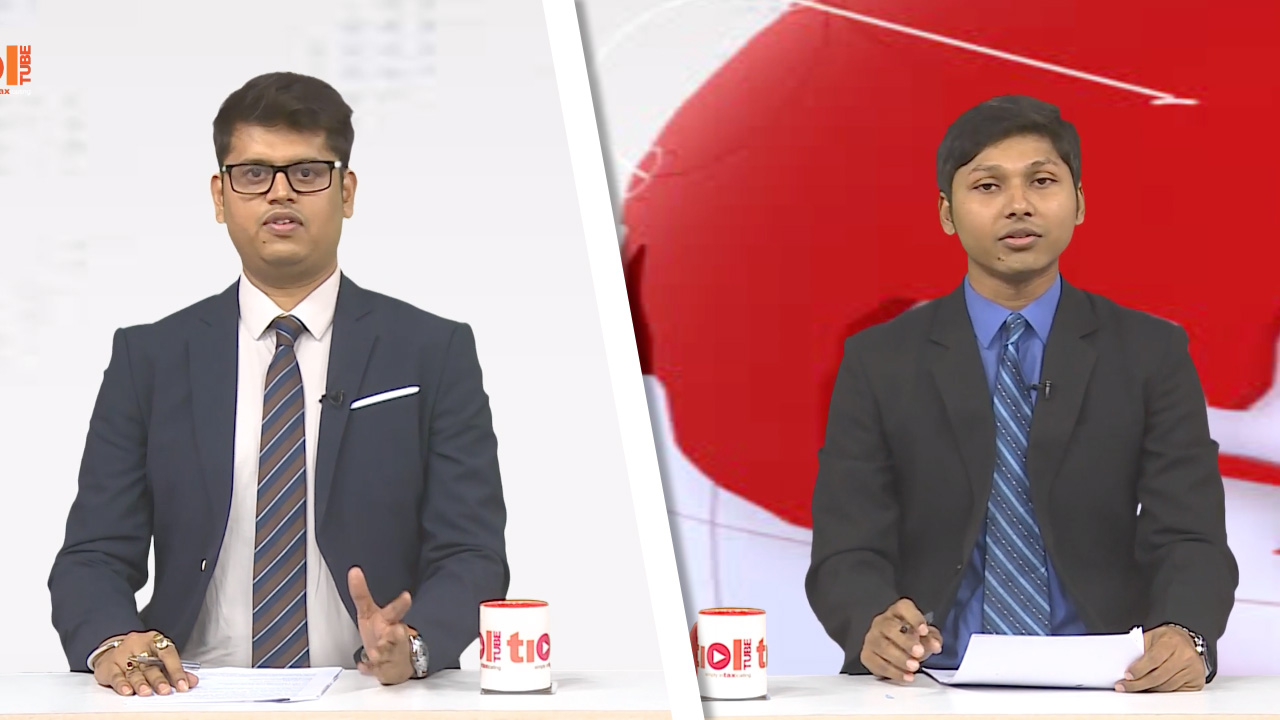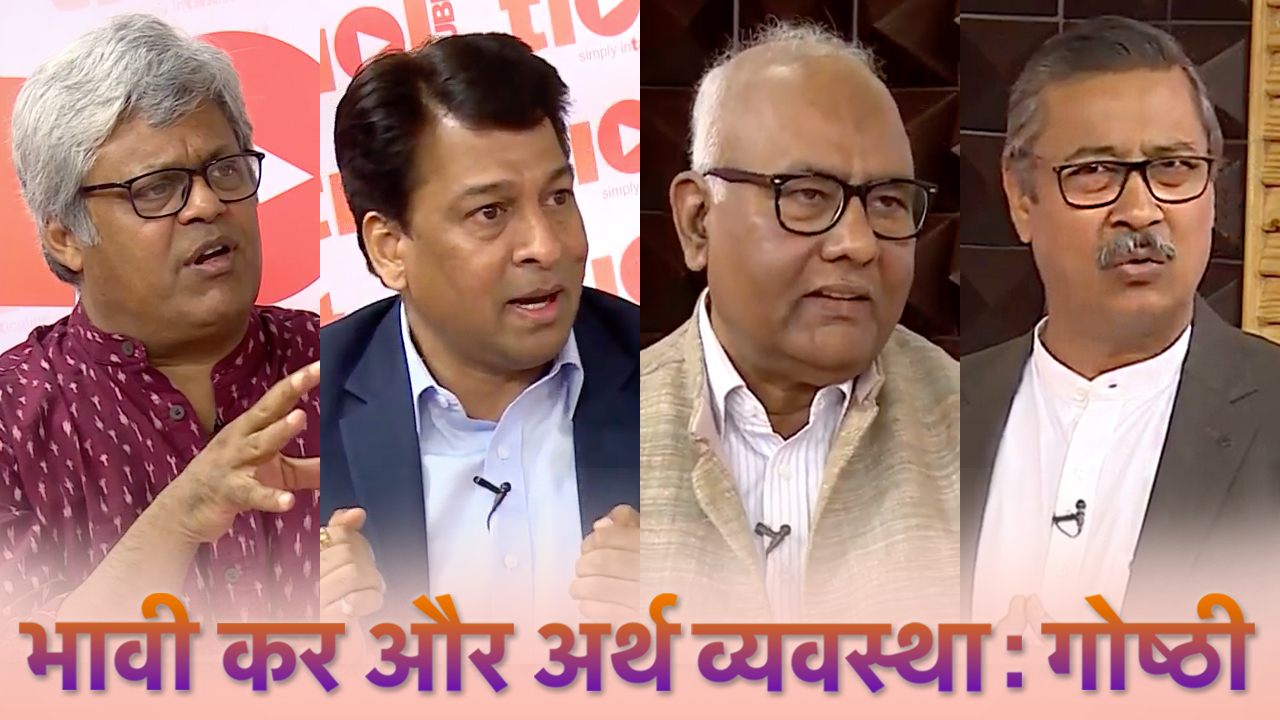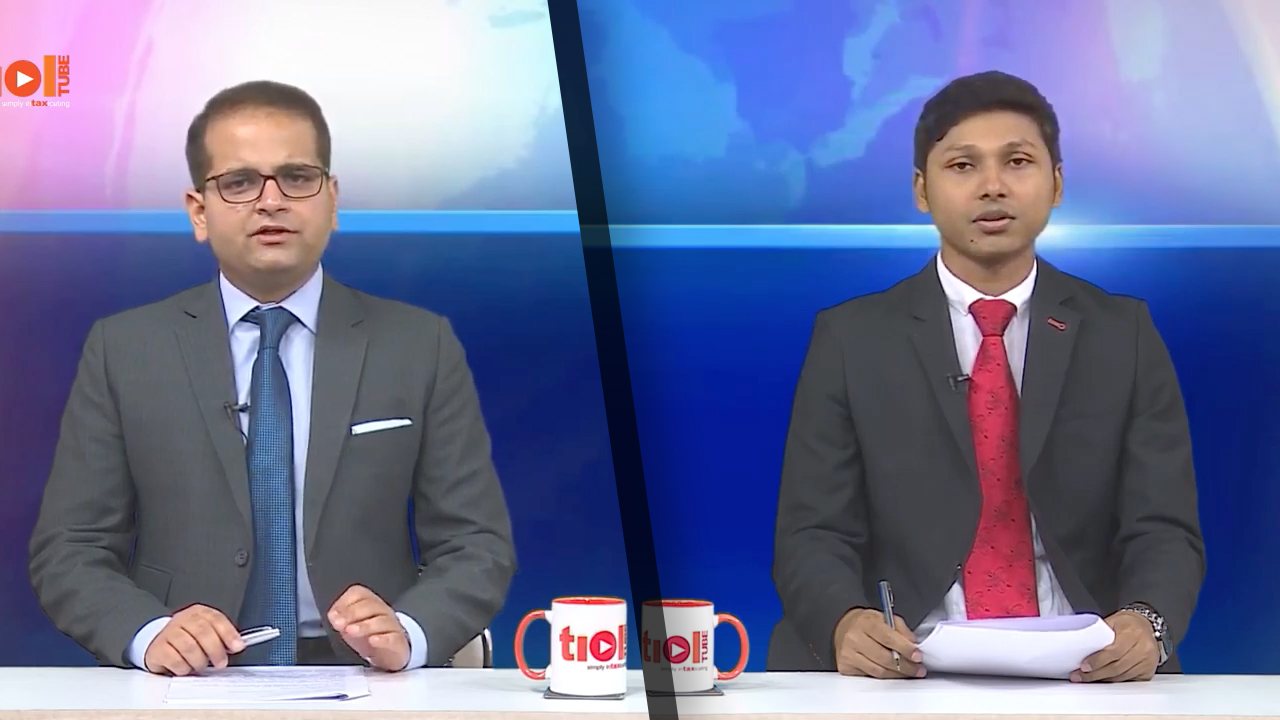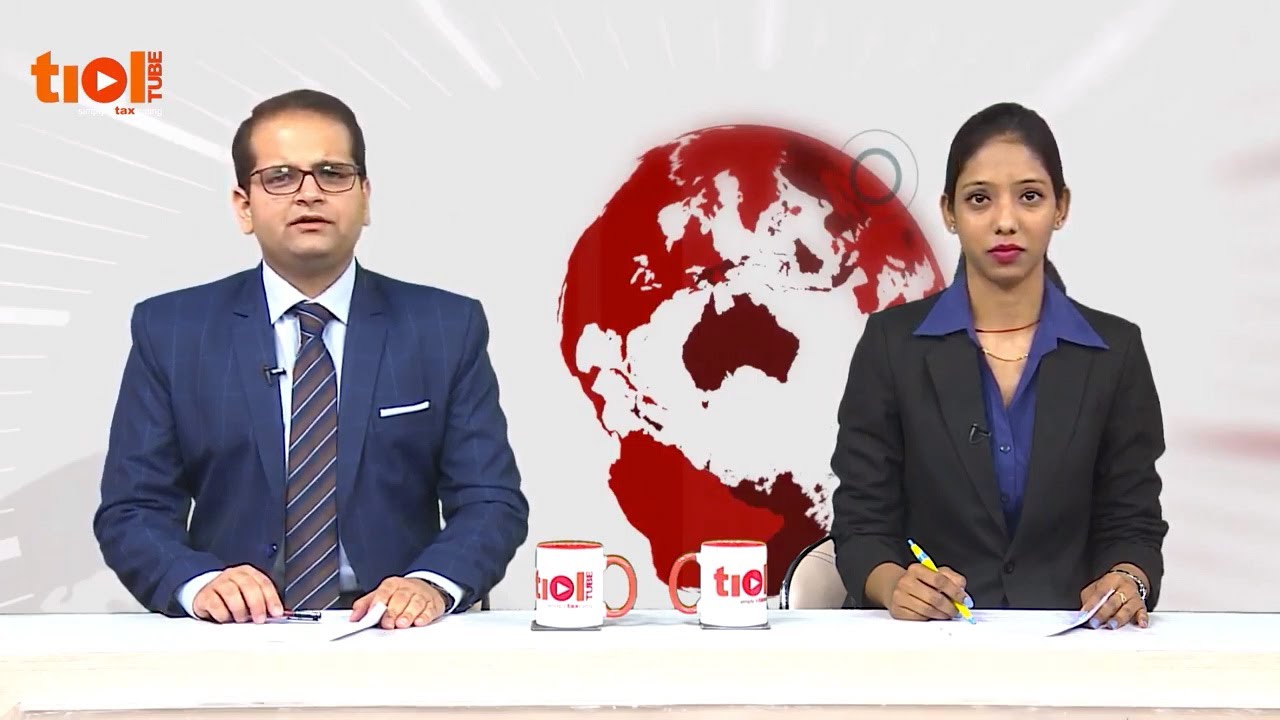| SERVICE TAX 2019-TIOL-932-HC-MAD-ST
Zak Trade Fairs And Exhibitions Pvt Ltd Vs CGST & CE
ST - The Tribunal by impugned order dismissed the appeal filed by assessee on the ground that it is barred by limitation and the assessee has failed to show sufficient cause for condonation of delay - The court cannot differ with the finding recorded by Tribunal because the delay is 1,103 days and the explanation offered is that some of the employees/managers have left the establishment and they did not bring to the notice of assessee/management about the O-I-A - Therefore, court would have been well justified in confirming the order passed by Tribunal in dismissing the appeal - However, bearing in mind the fact that the appellant has paid the entire tax liability and the only thing that remains to be paid is the penalty which has been quantified at Rs.5,38,595/-, this is a case where discretion can be exercised for condonation of the delay - In the result, the appeal is allowed and the order passed by the Tribunal is set aside, subject to the condition that the assessee deposits a sum of Rs.2,50,000/- before the Adjudicating Authority, within a period of two weeks: HC
- CMA allowed: MADRAS HIGH COURT
2019-TIOL-1207-CESTAT-CHD
CCT Vs DLF Ltd
ST - The assessee-company is engaged in real estate development - From time to time, it lauches projects for booking at pre-construction stage & invites applications from interested parties, who make applications for allotment along with earnest money so deposited - Upon processing, the allotment letters are issued to prospective buyers - The assessee then enters into a Allottee Apartment Buyer's Agreement which is primarily an Agreement to Sell/Purchase of the Property - After completion of the project, sale deeds were executed - The assessee also charges some transfer charges for the ease of buyers wanting to transfer their allotment in the name of the assignee - The Revenue opined that such transfer charges would attract service tax under Real Estate Agent Service - Duty demands were raised in some cases & were dropped in others - Hence the present cross appeals.
Held: The issue at hand had been raised & settled by the Tribunal's decision in Ansal Housing & Construction Ltd. Vs. CST, New Delhi and in Prestige Estates Projects Pvt. Ltd. Vs. Commissioner of Central Excise, Bangalore North - Following the judgment in both cases, it is held that as these transfer charges have not collected by the assessee as Real Estate Agent, no service tax is payable on the transfer charges - Hence the duty demand merits being quashed - The assessee's appeals are allowed while those of the Revenue are dismissed: CESTAT
- Revenue's appeal dismissed : CHANDIGARH CESTAT
2019-TIOL-1206-CESTAT-MAD
Coimbatore Anamallais Agencies Pvt Ltd Vs CGST & CE
ST - The appellant company is engaged in sale of Light Motor Vehicles & spares as well as Servicing & repair of LMV of Toyota brand at their authorized service station - The dealers of LMVs normally provide free services for the vehicles sold during warranty period - The expenses incurred for providing free services are reimbursed by the manufacturers - The appellant paid service tax on the labor charges but not on the portion of material cost reimbursed - SCNs were issued alleging that the appellant had not correctly adopted the value of taxable services provided by failing to include the money value of the consideration used in the taxable service procided - Contravention of provisions of Section 68(1) r/w Rule 6(1) of STR 1994 was also alleged - Duty demand was raised with interest & penalty - The demands were confirmed upon adjudication and were upheld by the Commr.(A) - Hence the present appeals.
Held: The thrust of the Revenue's contentions is that the appellant was reimbursed the expenses & the same were liable to be taxed - Such issue stands settled by the Apex Court in Union of India Vs. Intercontinental Consultants and Technocrats Pvt. Ltd. wherein it was held that the cost of reimbursable expenses are not to be included in the value of taxable service - Hence the demands raised are unsustainable and must be quashed: CESTAT (Para 2.1,2.2,5,6)
- Assessee's appeals allowed : CHENNAI CESTAT
CENTRAL EXCISE
2019-TIOL-933-HC-MAD-CX
Paripooranam Steel Traders Vs ACGT & CE
CX - This appeal by assessee is directed against Final Order of Tribunal - They submits that except for a reference to the original statement, the Tribunal has not rendered any finding as to how the allegation made against assessee has been made out and more particularly when they were able to produce documents to show that the goods were, in fact, supplied - The assessee, vide statement dated 14.9.2012, admitted the guilt - In fact, the CENVAT credit, which was availed, was reversed voluntarily - After about three years, the assessee retracted the statement on 19.2.2015 - In the interregnum, the assessee did not raise any plea with regard to allegation of coercion and duress while recording the statement dated 14.9.2012 - Therefore, the Adjudicating Authority, the Appellate Authority and the Tribunal were right in rejecting the retracted statement dated 19.2.2015 - With regard to the invoices, which were submitted by assessee, the Original Authority considered the same and found that the bank statements showed that the amount of money received by assessee did not correlate with any of the invoice values raised by assessee to M/s.Priya Engineering - In that regard, the Adjudicating Authority referred to a sample invoice and came to the conclusion that assessee had not established that the amounts received by them in their bank accounts from M/s.Priya Engineering pertained to the invoices detailed in annexure I to the said SCN - The Tribunal considered the contentions raised by assessee and assigned reasons as to why the contentions advanced by assessee do not merit consideration - Thus, the Tribunal passed a speaking order and by way of this appeal filed by assessee under Section 35G of CEA, 1944, court cannot be called upon to reappreciate the evidence, which was considered and appreciated by Adjudicating Authority, the First Appellate Authority and the Tribunal - Thus, no substantial question of law arises for consideration in this appeal: HC
- CMA dismissed: MADRAS HIGH COURT
2019-TIOL-1205-CESTAT-DEL
Rohit Vashishtha Vs CCE & ST
CX - The whole case has been made on the basis of documents recovered by officers from the residential premises of Rohit Vasistha, Authorized Signatory of the Appellant Co. and the statements recorded from him, director and supervisor of the Company - Rohit Vasistha been found wavering in the entire matter - The Appellant Company has alleged that as he was annoyed with the Company, he had fabricated the documents and kept the same at his residence to harm the Company - He has also written a letter to Commissioner complaining about the harassment by the Company on 12.08.2011 - But when his statements were recorded subsequently he had retracted the same the very next day by swearing affidavits - All these events make him unreliable - Further, the Adjudicating Authority has not allowed cross-examination of Rohit Vasistha which is gross violation of the principles of natural justice - The provisions of Section 9D of Central Excise Act have not been followed - In view of this, the statements are not admissible in evidence - None of the buyers whose name appeared on the copies of alleged parallel invoices recovered from the residential premises have been contacted to determine the fact of receipt of quantity mentioned in the invoices - No efforts seem to have been made by officers to ascertain the facts from transport owner/truck drivers about removal of goods without invoices and/or return of invoices to the Appellant company - After recovery of documents and recording of statements, the investigation stopped - No corroborative evidence to support the documents/statement has been brought on record - Further no discrepancy in the stock of raw material has been noticed by the officers at the time of search of the factory - Duty cannot be demanded on assumption and presumption, as has been done in the present matter - It has been assumed by Revenue that if there is no invoice issued within 15 days of order received from a buyer, the finished goods had been cleared without issuing an invoice and without payment of duty - As held by Supreme Court in Oudh Sugars Mills Ltd. - 2002-TIOL-307-SC-CX-CB the findings arrived at without any tangible evidence and based only on inferences, involving unwarranted assumption in the present matter are vitiated by an error of law - As far as shortage found in the stock of finished goods is concerned, there is nothing on record to show that actually the stock of laminated sheets were physically checked by the officers - The Revenue has not controverted the contention of appellant that in the given time of 9-10 hours, the officers were present in the factory premises, it was not feasible to verify the stock of laminated sheets of different sizes physically - Thus the Revenue has not succeeded in establishing that there was any shortage of finished goods in the factory of the appellant: CESTAT
- Appeals allowed : DELHI CESTAT
2019-TIOL-1204-CESTAT-AHM
CCE & ST Vs Sanathan Textiles Pvt Ltd
CX - The issue involved is that whether the assessee is entitled to utilize Cenvat credit of basic excise duty for payment of NCCD - In Rule 3 (1)(v), the Cenvat credit includes the NCCD leviable under Section 136 of FA, 2001 - As per this provision, credit of NCCD is a Cenvat credit - As regard utilization in terms of Rule 3(4)(a), the Cenvat credit is allowed to be utilized for payment of any duty of excise on any final product - Rule 3(7)(b) provides some restrictions, according to which the cevnat credit in respect of NCCD can be utilized only for payment of NCCD that means, Cenvat credit of NCCD is not allowed to be utilized for payment of basic excise duty - However, similar restriction is not provided for utilization of basic excise duty for payment of NCCD - Therefore, in view of the clear statutory provisions, there is no bar in utilization of basic excise duty for payment of NCCD - This issue has been considered by Gauhati High Court in case of Prag Bosimi Synthetics Limited - The High Court, after interpreting Rule 3(4) and Rule 3(7) came to the conclusion that the Cenvat credit can be utilized towards payment of NCCD in Cenvat credit - No infirmity found in the order of Commissioner (A) and the same is upheld.
- Appeal dismissed : AHMEDABAD CESTAT
CUSTOMS
2019-TIOL-928-HC-KAR-CUS
Grace Rai@Rose Vs Intelligence Officer
Narcotics Drugs and Psychotropic Substances Act, 1985 [NDPS Act] - Petition has been filed by the petitioner-accused under section 439 of Cr.P.C. to release her on bail in NCB case pending before the Special Judge for NDPS Cases, Bangalore for the offences punishable under sections 8(c) r/w sections 21, 22, 28 and 29 of NDPS Act.
HELD - the quantity of contraband articles which have been seized from the possession of the petitioner is not a commercial quantity - therefore, restrictive provisions of section 37 of the NDPS Act will not come in the way of releasing the petitioner on that ground - there has been infraction of Standing Instructions No.1/88 of Narcotics Control Bureau - when there is infraction of Standing Instructions, the provisions of section 37 of the NDPS are not applicable and this petition can be considered within the parameters of section 439 of Cr.P.C. - already the investigation has been completed and charge sheet has been filed - under such circumstances, the petitioner-accused is entitled to be released on bail - accordingly, the petition is allowed and accused-petitioner is enlarged on bail subject to the following conditions : (i) petitioner shall execute a personal bond for Rs.5 lakhs with two local solvent sureties for the like sum to the satisfaction of the trial Court (ii) she shall surrender her passport before the jurisdictional trial Court (iii) she shall be regular in attending the trial (iv) she shall not tamper with the prosecution witnesses or evidence directly or indirectly (v) she shall not involve herself in similar type of criminal activities (vi) she shall not leave the jurisdiction of the trial Court without prior permission - if she wants to leave, she has to give her residential address before the jurisdictional Court (vii) she shall mark her attendance on 1st of every month before the jurisdictional police between 10.00 a.m. and 5.00 p.m. : HIGH COURT [para 7]
-Criminal Petition allowed : KARNATAKA HIGH COURT
2019-TIOL-1203-CESTAT-MAD
Elastrex Polymers Pvt Ltd Vs CC
Cus - Assessee had filed Bill of Entry for clearance of goods declared as "EVA ESi8002" and the same was assessed to duty with Basic Customs Duty @ 7.5% and CVD @ 12% with applicable other duties - Subsequently, it was noticed by assessee that they were entitled to Nil rate of Basic Customs Duty for said goods vide Notfn 54/2013 - Accordingly, assessee filed a refund claim which was rejected by original authority on the ground that assessee had not challenged the assessment and that unless original order is challenged or modified, the claim for refund does not arise - A perusal of Certificate of Origin filed by assessee clearly certifies that the goods were produced in Republic of Korea and they comply with the origin requirements specified for these goods in the Korea-India Comprehensive Economic Partnership Agreement - It is also noticed that the said Country of Origin has been issued on 24.02.2014 by the Director, Korea Chamber of Commerce & Industry - Further the goods have been loaded at Inchon Port as per Bill of Lading - Matter remanded to the original authority to re-examine the issue only from the aspect of whether documents and certificates submitted by assessee are adequate to satisfy that the imported goods were indeed originating from the Republic of Korea and therefore qualifying for exemption benefit under Notfn 54/2013-Cus: CESTAT
- Matter remanded : CHENNAI CESTAT
2019-TIOL-1202-CESTAT-KOL
S R K Metal and Industries Pink Commercial Vs CC
Cus - The assessee has imported consignment of electronics, electrical goods and mobile accessories from China through Kolkata Port and generated Bill of Entry through Customs Electronic Declaration Interchange (EDI) - The said goods were assessed by proper officer of customs at the declared rate - The assessee, through its authorised Customs Broker, filed the Bill of Entry on first check basis under EDI system, as the assessee was not certain about valuation, classification and assessments of goods imported by them - The proper officer of Customs marked the examination order stating that "open all the packages and conduct 100 % examination in presence of DRI, check declaration, clearance withheld till further order from DRI" - This examination order was given by Appraising Officer as per Bills of Entry - It is the contention of Revenue that by this change the need for issuance of SCN is not required - The only thing which is required to be done under the amended provision is that the Adjudicating Authority will have to satisfy himself and record the reasoning for extension of SCN after satisfying himself on the basis of facts produced before him by Investigating Agency - Similar issue has come before Tribunal in case of Harbans Lal wherein it is held that two Sections 110 and 124 are independent, distinct and exclusive of each other resultantly in the reviewing the proceedings of Section 124 in case itself with the seized goods might have been return or has been returned in terms of Section 110 of Customs Act after the expiry of permissible seizure - It is seen from the order that Commissioner while extending the time period has only gone by the letter of DRI and not put up to him by his office without examining the merits of the such extension and recording his own finding - His finding is only two worded finding which is 'GC issued dated 26/06/2018' Sd- M Chandra - This proves that there is no independent application of mind by Commissioner (Port) for the extension of SCN even by accepting his assertion that the only requirement is that the Principal Commissioner/ Commissioner of Customs made for the reasons to be recorded in writing, extends such period to further period not extending six months and inform the person from whom the goods are seized - Obviously, the amendment will not have its application from the retrospective date - The amendment has not been made with retrospective effect as is evident from Finance Act, 2018 - In case of Vatika Township - 2014-TIOL-78-SC-IT-CB , Supreme Court has held that the law enacted in absence of a provision in the statue about the same being with of retrospective effect in Clause of Finance Act, the amendment will have prospective effect only - The impugned order is not sustainable as the new amended provision has been applied for the seizure made during period when the amendment was not there in the statue - There is no legality for dispensing with SCNs to the affected party even under the amended provisions of Section 110(2) of the Act - The Adjudicating Authority has erroneously held that there is no need of issue of SCN in the case of extension at hand - Accordingly, the impugned order is set aside: CESTAT
- Appeals allowed : KOLKATA CESTAT
| 









